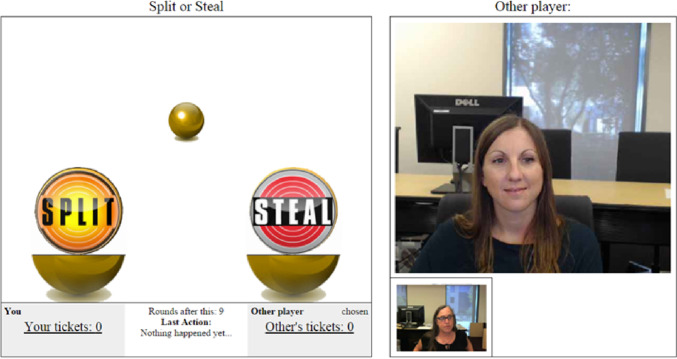Facial Regulation During Dyadic Interaction: Interpersonal Effects on Cooperation
Abstract
This study investigated interpersonal effects of regulating naturalistic facial signals on cooperation during an iterative Prisoner’s Dilemma (IPD) game. Fifty pairs of participants played ten IPD rounds across a video link then reported on their own and their partner’s expressed emotion and facial regulation in a video-cued recall (VCR) procedure. iMotions software allowed us to auto-code actors’ and partners’ facial activity following the outcome of each round. We used two-level mixed effects logistic regression to assess over-time actor and partner effects of auto-coded facial activity, self-reported facial regulation, and perceptions of the partner’s facial regulation on the actor’s subsequent cooperation. Actors were significantly less likely to cooperate when their partners had defected on the previous round. None of the lagged scores based on auto-coded facial activity were significant predictors of cooperation. However, VCR variables representing partner’s positive regulation of expressions and actor’s perception of partner’s positive regulation both significantly increased the probability of subsequent actor cooperation after controlling for prior defection. These results offer preliminary evidence about interpersonal effects of facial regulation in interactive contexts and illustrate how dynamic dyadic emotional processes can be systematically investigated in controlled settings.


 求助内容:
求助内容: 应助结果提醒方式:
应助结果提醒方式:


